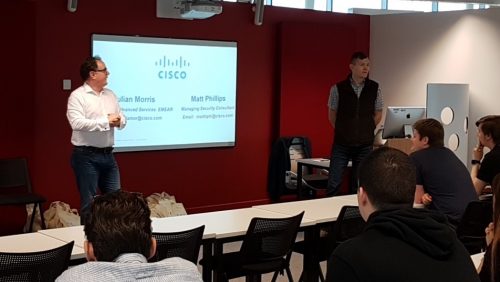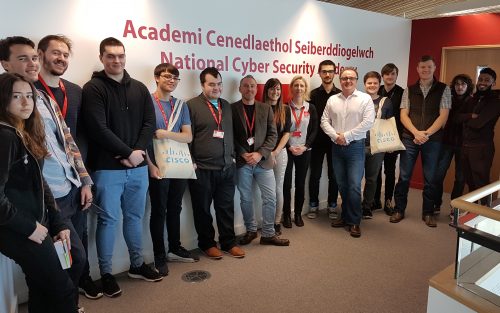
We all know cybercrime is big news. It seems as though almost every week, another big-name organisation or multi-national corporation is affected. And as attacks become more sophisticated and malicious software is ever more easily attainable, the problem is highly likely to be with us indefinitely.
It’s therefore no wonder that cyber-related work is the fastest growing area of employment; it’s anticipated that by 2019, there will be a shortage of 2 million cyber security experts across the globe, and that as many as 4.5 million specialists will be needed to combat this ever-growing and constantly evolving threat.
Which means that if we are going to have any chance keeping cybercrime at bay in the future, we need to start training tomorrow’s cyber security experts now.
Innovation in action
As a member of the Advisory Board for the Welsh Government Enterprise Zone & Learning, Skills and Innovation Partnership council, last year’s announcement that the University of South Wales (USW) and Welsh Government were working together to establish the National Cyber Security Academy (NCSA) was very welcome news to me.
And on learning more about the NSCA’s aims to tackle the cyber skills shortage via its B.Sc. Hons in Applied Cyber Security, I was very keen for us to play a part. In April this year, started a discussion at a Cisco One Services event with my colleague Paul Docherty – EMEAR Director of Security Advisory services – to work out how we could potentially contribute to this degree course.
Having visited the USW Campus in June 2017 to discuss our potential involvement, explore the facility and meet some of its students, the next stage was to obtain our UKI Chief Executive Scot Gardner’s agreement to participate. By July, we’d developed an agreement with the university that would enable us to deliver guest lectures and offer advice on course and content development. We also agreed to share our technical competency assessments to help USW understand the subject from an industry point of view, and supply security software imagery to help bring lectures to life.
Hosted lecture days

Matt and I get the day started
With the first intake arriving in October, we then had to move quickly from concept to reality. Having reviewed the modules for the year ahead with faculty leaders, we created an agenda for our first guest lectures, which covered everything students had learned during the previous weeks, and offered practical experience in addition.
The first Cisco lecture day took place on 23rd November, hosted by our security consultant Matt Phillips and myself.
While our morning session included a Cisco overview and team building activity, Matt’s afternoon programme included detailed cybersecurity theory, and practical hands-on work experience using virtual machines he had set up.
Creating tomorrow’s experts today
That was just the start – we’re now looking forward to our continuing involvement in this degree course, hopefully helping NCSA address a business-critical issue that affects not only Wales and the UKI region, but the rest of the world.

The students enjoyed a busy and informative day
Personally, I’m very happy that we are involved in what is hopefully a long-term initiative to nurture future talent, creating a pool of highly trained and therefore highly employable graduates.
It makes sense that Cisco is involved; our team of researchers block 20 billion cyber threats a day, and 80% of the worlds internet traffic goes through our networks. This in-depth knowledge means we are able to help shape future modules to ensure they reflect the threat landscape as it changes.
And with academia, government and business working together, this represents a real opportunity to close the cyber security skills gap.
To find out more about what we’re doing in both cybersecurity and education, contact us.
2 Comments


Amazing Julian! Way to go.
Great way to give back Julian. Thanks for sharing and well done.